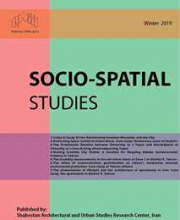۱.
کلیدواژهها:
social media mental health Anxiety Depression Body image Self-esteem
The rise of social media has transformed modern communication, creating connectivity and fostering new platforms for self-expression. However, this shift has raised significant concerns about its effects on mental health. This article critically examines the relationship between social media use and mental health. While social media can provide valuable social support and facilitate the sharing of personal achievements, evidence suggests it may also contribute to heightened anxiety, depression, and body dissatisfaction, especially among adolescents and young adults. The article analyzes how social media algorithms, the pressure to present an idealized self-image, and constant comparison with others create an environment where self-esteem and mental well-being are often compromised. Furthermore, the long-term implications of social media use, including its impact on attention spans, social isolation, and self-worth, are discussed. Ultimately, this article emphasizes the importance of understanding and managing social media’s influence on mental health to create healthier digital environments.
۲.
کلیدواژهها:
Artificial Intelligence crisis management Natural Disasters Continuous Education earthquakes
Artificial Intelligence has is a pivotal tool in enhancing crisis management during natural disasters such as earthquakes. This article examines the role of AI in generating real-time information, predicting stakeholder and population responses, and optimizing decision-making processes. A meta-analysis of existing literature highlights AI's potential to transform traditional crisis management approaches by enabling rapid assessment of disaster scenarios, efficient resource allocation, and communication strategies tailored to situational dynamics. However, the integration of AI in such critical domains requires not only technological advancement but also a paradigm shift in the skills and competencies of crisis management professionals. This paper argues for the necessity of continuous education for stakeholders, emphasizing training in AI tools and data literacy to ensure effective utilization of these technologies in high-stakes environments. Furthermore, it explores the ethical implications of AI use in crisis contexts, including issues of accountability, data privacy, and bias mitigation. To address these challenges through sustained education and interdisciplinary collaboration, stakeholders should harness AI’s full potential while minimizing risks.
۳.
کلیدواژهها:
Artificial Intelligence MBA education graduate perceptions Curriculum reform Iranian Universities
This study explores the perceptions of Iranian MBA graduates regarding the integration of AI into business education. Drawing on survey data from 379 alumni across a range of Iranian universities, the research assesses five core dimensions: perceived usefulness of AI, ethical concerns, faculty preparedness, job market implications, and interest in AI-focused coursework. The study also investigates whether demographic factors such as age, gender, income level, and marital status significantly influence these perceptions. Results indicate a generally favorable view of AI integration, with particularly strong support for incorporating AI coursework into MBA programs. Despite broad enthusiasm, respondents expressed concerns about data privacy, algorithmic bias, and the limited readiness of faculty to teach AI-related content. Inferential tests and path analysis reveal that demographic variables had little predictive power over AI perceptions or preferences, suggesting widespread acceptance across social strata. The findings underscore both the readiness of Iranian MBA graduates for AI-related curricular reform and the need for targeted institutional responses, including faculty development and ethical frameworks.
